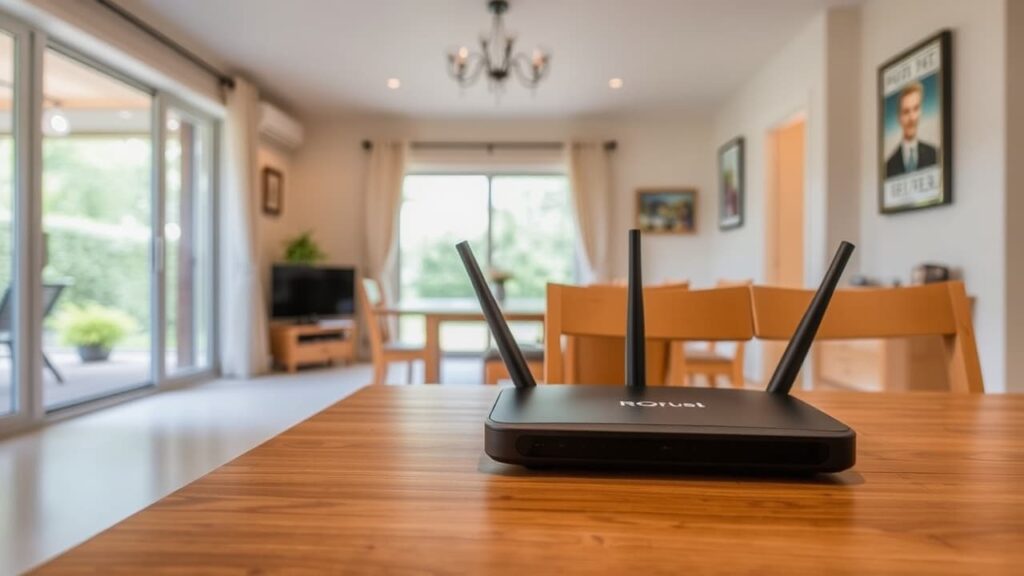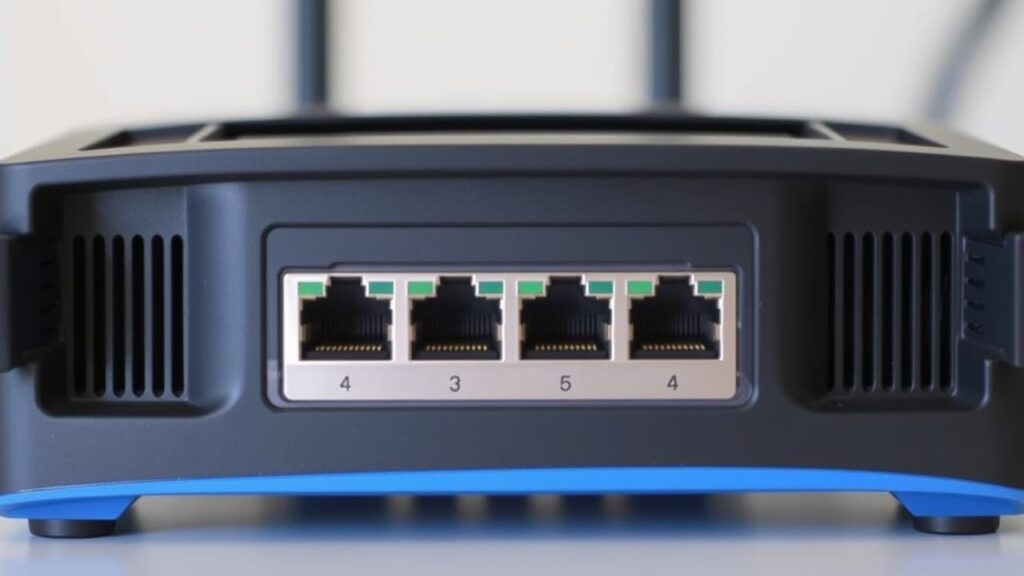In today’s digital age, understanding the difference between networking devices such as modems and routers is crucial for establishing a reliable internet connection. With a multitude of devices in our homes, from smart TVs to smartphones, having a solid grasp of how these devices work can enhance our ability to connect and access the internet seamlessly. This article will delve into the functions of each device and highlight their importance in a local network.
Introduction to Networking Devices

Networking devices play a vital role in facilitating communication between various devices and the internet. Among these, the modem and router stand out as fundamental components that ensure smooth connectivity. While some might confuse the two, each serves a distinct purpose in enabling users to connect to the internet. Understanding the differences between them is essential for optimizing your home network and ensuring that multiple devices can access the internet simultaneously.
What is a Modem?
A modem is a device that connects your home network to the internet service provider (ISP). It performs the crucial function of modulating and demodulating signals, which allows data to be transmitted over various types of internet connections, such as DSL or cable. Essentially, the modem converts signals from your ISP into a format that your devices can understand. Without a modem, you cannot connect to the internet, as it serves as the gateway that enables your home network to access online resources.
What is a Router?
In contrast to a modem, a router is a device that manages your local area network (LAN) and directs traffic between connected devices. It allows multiple devices to connect to the internet wirelessly or through Ethernet cables. The router creates an internal network by assigning IP addresses to each device, enabling them to communicate with one another. Furthermore, a wireless router provides WiFi access, allowing devices to connect without the need for physical cables. This functionality is essential in modern homes where numerous devices seek to access the internet simultaneously. Integrating security features such as VPN Unlimited can enhance the privacy and protection of your data across various devices.
Importance of Both Devices in a Network
Both the modem and router are indispensable for a functional home network. The modem connects your home to the ISP, while the router manages how data flows within your local network. The combination of these devices enables you to connect to the internet and allows multiple devices to access online resources effectively. Without a separate modem and router, or a modem-router combo, users might find themselves limited in terms of internet access and the ability to use multiple devices efficiently. Understanding the roles of each device can significantly enhance your networking experience.
Difference Between a Modem and Router

Functionality of a Modem vs Router
The fundamental difference between a modem and a router lies in their functionality. A modem is a device that connects your home network to the internet service provider (ISP), modulating and demodulating signals to facilitate communication over various types of internet connections, such as DSL or cable. In contrast, a router is a device that manages the local area network (LAN), directing traffic between multiple devices connected within the network. While the modem connects your home to the ISP, the router ensures that devices can communicate with each other and access the internet simultaneously, effectively creating an internal network.
How Each Device Connects to the Internet
Understanding how each device connects to the internet is crucial in recognizing their distinct roles. The modem connects directly to the ISP through a coaxial cable or DSL line, converting the incoming signal into data your devices can understand. This connection is essential as it provides the gateway for internet access. On the other hand, the router connects to the modem via an Ethernet cable, allowing it to receive the internet connection and distribute it wirelessly or through additional Ethernet ports. This setup enables multiple devices to connect to the internet and access shared resources efficiently, highlighting the importance of both the modem and router in the overall network architecture.
Network Management: Modem and Router Roles
In terms of network management, the roles of the modem and router are equally important but distinctly different. The modem’s primary function is to convert and transmit data between your home and the ISP, effectively serving as an access point to the internet. Conversely, the router manages the local network by assigning IP addresses to devices and controlling the flow of data between them. It acts as a firewall, providing security for connected devices and ensuring that internet access is distributed fairly among users. Together, the modem and router create a robust framework that allows for seamless connectivity and efficient management of multiple devices within your home network.
Router vs Modem: Key Features
Wireless Capabilities
Wireless capabilities are a significant feature that distinguishes routers from modems. A wireless router is a device that creates a local area network (LAN), allowing multiple devices to connect to the internet without physical cables. This wireless technology enables users to access the internet from various locations within their home network, providing flexibility and convenience. In contrast, a modem is primarily designed to connect your home to the internet service provider (ISP) through a coaxial cable or DSL line. While some modems may offer limited wireless functionalities, they lack the advanced features that a dedicated router provides. Consequently, for homes with numerous devices requiring internet access, a separate router is essential to manage wireless connections effectively, ensuring users can enjoy high-speed internet across multiple devices simultaneously.
Data Transmission Speeds
Data transmission speeds are critical for any home network, and understanding the capabilities of both modems and routers can help optimize your internet experience. A modem connects your home to the ISP, converting signals into data that your devices can understand, which directly affects your internet service quality. Different types of modems, such as cable modems or DSL modems, can vary in their maximum speeds based on the plan provided by the ISP. Conversely, routers manage the distribution of that internet connection among devices, and features like dual-band support and the latest WiFi standards (such as WiFi 6) can significantly enhance wireless data transmission speeds. Therefore, when evaluating the performance of your home network, it is essential to consider both the modem’s ability to connect to the ISP and the router’s capability to manage high-speed connections for multiple devices effectively.
Security Features in Routers and Modems
Security features are paramount when it comes to protecting your home network and ensuring safe internet access. Routers are equipped with advanced security protocols, such as firewalls and WPA3 encryption, which safeguard connected devices from unauthorized access and cyber threats. By managing how data flows within your local network, routers can effectively isolate devices and prevent malicious attacks. On the other hand, modems primarily serve as the gateway to the internet and generally offer limited security features. While a modem connects your home to the ISP, it is the router that provides a more comprehensive range of security measures to protect the entire network. For optimal safety, it is advisable to use a separate modem and router setup, allowing you to leverage the robust security capabilities of modern routers while ensuring stable internet connectivity through the modem.
When Do You Need a Modem and Router?
Scenarios Requiring Both Devices
In many home networking scenarios, both a modem and router are essential to ensure a stable internet connection. For instance, if you have a cable internet service, the modem connects your home to the ISP via a coaxial cable, while the router manages the local area network (LAN). This setup is particularly vital when multiple devices need to connect to the internet simultaneously. In such cases, the router creates a WiFi network, allowing smartphones, laptops, and smart TVs to access the internet wirelessly. Additionally, having a separate modem and router enhances network performance, as it allows for better management of data transmission speeds and security features.
Can You Use a Modem Without a Router?
Yes, you can use a modem without a router, but it significantly limits your network capabilities. A modem connects your home to the internet service provider, allowing a single device to access the internet. However, without a router, you cannot share that internet connection among multiple devices. For example, if you connect a computer directly to the modem using an Ethernet cable, only that one device can access the internet. This setup is suitable for minimal usage, but for households with several devices requiring internet access, a router is necessary to create a local network and manage connectivity efficiently.
Choosing Between a Modem or Router
When deciding between a modem or router, it’s important to understand their distinct functions. A modem is primarily used to connect to your ISP and convert signals for internet access, while a router is responsible for managing the local network and allowing multiple devices to connect wirelessly or through Ethernet ports. If you already have a modem, investing in a separate router can enhance your home network by providing better wireless coverage and additional security features. Conversely, if you only need internet access for one device, a modem-router combo might suffice, but separating the two devices often leads to improved network performance.
Common Questions About Modems and Routers
Do I Need a Separate Router?
Whether you need a separate router largely depends on your internet usage and the number of devices connected to your home network. If you have multiple devices that require internet access—such as smart TVs, smartphones, and laptops—a separate router is highly recommended. This allows for better management of IP addresses and ensures that all devices can connect simultaneously without experiencing slowdowns. A dedicated router also provides advanced features like security protocols and parental controls that enhance the safety and usability of your network. For single-device usage, however, a basic modem may suffice.
What is an Access Point?
An access point is a device that allows wireless devices to connect to a wired network, extending the coverage of your local area network (LAN). It functions similarly to a router but is specifically designed to enhance WiFi connectivity in larger spaces or areas where the signal is weak. By connecting to the existing network, an access point can boost the wireless range, allowing devices to access the internet more reliably. This is particularly useful in larger homes or offices where the signal from the primary router may not reach every corner effectively.
Understanding Modem and Router Compatibility
Compatibility between your modem and router is crucial for ensuring seamless internet access across devices. When choosing a router, it’s important to verify that it is compatible with your modem, particularly regarding the type of internet connection—be it cable, DSL, or fiber. Many ISPs provide a list of approved modems and routers to ensure optimal performance. Additionally, using a modem-router combo can simplify the setup process, but separating the devices often provides better performance and flexibility in managing your home network, ensuring that you can connect multiple devices without any issues.